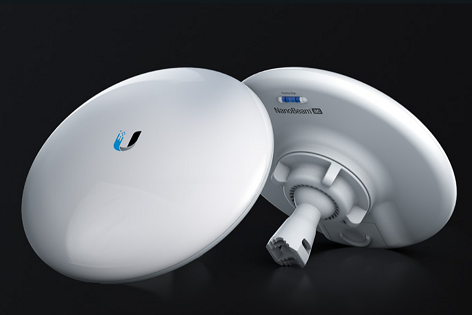
World Wide Web |
In the vast expanse of space, where communication is vital for mission success and understanding the cosmos, WiFi technology has emerged as an indispensable tool. From Earth-bound satellite operations to the International Space Station (ISS) and beyond, WiFi’s adaptability has revolutionized the way we explore and communicate in the final frontier.
**Enhancing Satellite Operations:**
Satellites are our eyes and ears in space, providing critical data for weather forecasting, navigation, and communication. WiFi technology enables satellites to transmit vast amounts of information back to Earth, aiding in disaster response, scientific research, and telecommunications.
**Enabling Robotic Explorers:**
Space rovers and robotic explorers rely on WiFi for communication with their control centers. This technology allows scientists and engineers to remotely guide these machines across distant planets, moons, and asteroids, gathering valuable data and images.
**International Space Station Connectivity:**
On the ISS, WiFi plays a pivotal role in maintaining the daily operations of the crew. Astronauts use WiFi for communication with mission control, collaboration with researchers worldwide, and even connecting with loved ones through video calls.
**Deep Space Missions:**
As we venture farther into space, WiFi becomes an essential communication link between Earth and deep-space probes. These probes transmit data, images, and scientific findings from the outer reaches of our solar system and beyond.
**Interstellar Internet Concepts:**
Researchers are exploring the possibility of creating an “Interplanetary Internet” that could serve as a communication network for spacecraft and space missions. WiFi-based protocols and technologies are being studied to enable reliable and efficient data exchange over vast distances.
**Challenges and Solutions:**
Space poses unique challenges for WiFi technology, including signal degradation over long distances and potential interference from cosmic radiation. Engineers address these challenges by developing robust communication protocols, using advanced error correction techniques, and designing resilient hardware.
**Future Prospects:**
As space exploration continues to evolve, WiFi technology will likely become even more sophisticated. Quantum communication, with its potential for secure, instantaneous data transfer across vast distances, holds promise for future deep-space missions.
In conclusion, WiFi technology has transcended our planet’s boundaries, becoming an integral component of space exploration. Its adaptability, reliability, and capacity for transmitting data have transformed the way we connect, communicate, and conduct research in the cosmos. As humanity looks toward the stars, WiFi technology will remain a beacon of connectivity in the darkest reaches of space.

Speed, Wireless, World Wide Web |
In the digital age, having a reliable and fast internet connection is essential for both individuals and businesses. When it comes to selecting an Internet Service Provider (ISP), many people tend to gravitate towards well-known big box companies. However, in this blog post, we’ll explore the advantages of choosing a local ISP provider over a large corporate entity. From personalized customer service to supporting your community, opting for a local ISP can offer a host of benefits that go beyond just internet connectivity.
1. Personalized Customer Service
One of the most significant advantages of choosing a local ISP provider is the level of personalized customer service you can expect. Unlike big box companies, local ISPs prioritize customer satisfaction and are invested in building long-term relationships with their clients. When you call a local provider, you’re more likely to speak directly to a knowledgeable representative who can address your concerns promptly and efficiently. This personalized approach ensures a smoother experience when resolving technical issues or making changes to your service.
2. Faster Response Times
With a local ISP, you can enjoy faster response times when you need assistance. Big box companies often handle an overwhelming number of customer inquiries, leading to longer wait times and delayed resolutions. Local ISPs, on the other hand, operate on a smaller scale, enabling them to respond quickly to service outages or technical problems.
3. Tailored Internet Solutions
Local ISPs understand the unique needs of their community and can tailor their internet solutions accordingly. Whether it’s offering packages optimized for small businesses, flexible plans for individual users, or accommodating specialized requirements, local providers are more adaptable to meet their customers’ specific demands. This level of customization ensures that you receive the services that best suit your needs and budget.
4. Better Network Performance
While big box companies may have a wider reach, local ISPs can offer better network performance in their respective service areas. Since they serve a smaller customer base, local providers can allocate more resources to ensure stable and fast internet connections. This results in reduced latency, improved download and upload speeds, and overall better performance compared to big box companies, where network congestion may be more prevalent.
5. Support for Local Economy
Choosing a local ISP provider also means contributing to the growth of your community and supporting the local economy. These companies are often small to medium-sized businesses that create job opportunities within the community. By investing in their services, you help stimulate economic development and foster a sense of pride in your area.
Conclusion
When it comes to choosing an Internet Service Provider, the benefits of going local go far beyond just internet connectivity. Personalized customer service, faster response times, support for the local economy, tailored internet solutions, and better network performance are compelling reasons to consider a local ISP provider over a big box company.
By making the switch to a local ISP, you can enjoy a more positive and efficient internet experience while knowing that your decision supports local businesses and the community. So, the next time you’re in the market for internet services, consider looking beyond the big names and explore the hidden gems of your local ISP providers – you may just find the perfect fit for your needs.

Great Service, Security, Uncategorized, World Wide Web |
Colo is industry slang for server colocation. Colocation is a tower of computer servers usually stored in racks. Servers colocation facilities safely store and preserve your servers if there is a power outage or a worst case scenario like an earthquake, fire, or theft.
Server colocation is a simple way to grow your business. If you have a small company and need server storage because you are expanding, server colocation may solve these issues. Colocation is much cheaper than building or expanding your data center.
What are the things that you want to look for in a colocation space? The first is security: your server must be securely stored. The second is stability. Often, in colocation sites the power is backed up and air conditioning is used to keep the servers running well. The third consideration is location. Do you need your servers to be local? Or do you prefer to have colocation occur in another state or even another country.
This is an excellent article about How to Shop for a colocation provider.
Interested in colocation? Salmon Bay Technology provides low cost colocation for your servers.
We offer a stable solution for your applications and important data. Our services are reliable and secure

Great Service, Internet, Speed, Uncategorized, Wireless, World Wide Web |
Salmon Bay Wireless has rolled out a new antenna in Ballard. This is great for the area, as it provides customers with a local company with outstanding Internet Service. We also feature low pricing. The new antenna gives customers an alternative to massive corporations that don’t have great customer service and require contracts.
Salmon Bay Wireless doesn’t require contracts. We provide 10 Mbits to hundreds of Mbits. We can service homes, condos, apartments and businesses. Installation is free with pre-paid service.
Installation is easy – we attach some small hardware to get the tower signal. (Our largest hardware option is smaller than a satellite tv dish). Then we install a router in your house that is the standard size of most wireless routers.
Do you live in our new service area? If you do check out our website for more information by submitting a service inquiry today or email [email protected]. Give us a call at 206-400-8000.

AOL, Google, Internet, Trivia, Wireless, World Wide Web |
Here are some weird and wacky facts about the Internet
- The word GIF (the GIF image format) is supposed to be pronounced Jiff, like the peanut butter. When Steve Wilke first came up with the GIF in 1987 that’s what he wanted – and what he still wants.
- AOL (you’ve got mail) issued over 50% of all CD-ROM discs in the 1990s. That’s 100% more than the last Fountains of Wayne album.
- Google was named after the largest number, called a googol. Not the dance craze, the googaloo.
- Twitter was originally called Twttr back in 2006. But then they discovered vowels.
- This is the first and oldest site on the World Wide Web. It was invented before your parents.
- The average search time for a google search is .2 seconds. Google is actively working to shrink this by reading your mind.
- The most expensive Google AdWord is insurance. The second is loans. The most popular search phrase is call your mother already.
- The word WiFI doesn’t mean anything and was invented by a consulting firm. This time I am serious.
- China has treatment camps for Internet Addicts. They are called prisons.
- The Internet and the World Wide Web are two different things. The Internet is a computer network and the world wide web is according to Oxford Languages “an information system on the internet which allows documents to be connected to other documents by hypertext links, enabling the user to search for information by moving from one document to another.”
- LOL used to mean “lots of love” but now it means “laughing out loud”, although when jokes are as bad as these it means “lack of laughter”.
- Prisoners in Norway have Internet in their cells. This makes it easier to look up the word insurance on Google.
- Salmon Bay Wireless is the only Internet Service Providers in the world named after Salmon Bay. (Salmon Bay is an actual Bay – not the fictional town featured in the Playstation 4 game InFamous).
- You are now reading this on the Internet (or is it the world wide web?). Do you have any weird, funny, or wacky facts about the Internet that you would like to share? Leave them in the comments.




